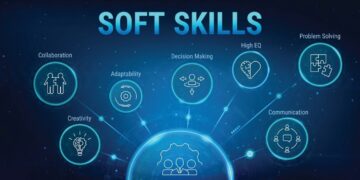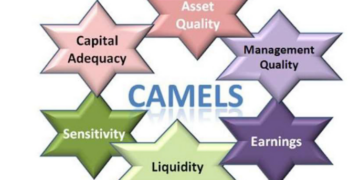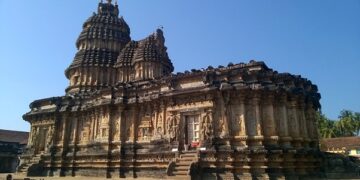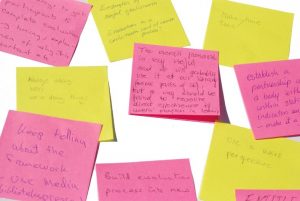Writing a book review activates analytical learning. It engages the reviewer with the contents of the book. It enhances good reading habit because as a reviewer, one analyzes whether the book has achieved its purpose and what are its unique perspectives on a topic/subject. As a teacher of management studies, I use book review as one of the pedagogical tools and have seen good results. In fact in higher education, it is one the good assignments, which needs broader propaganda. I think the more we encourage students to often write informally, in every content area, we improve their learning, language, behavior, engagement with subjects etc.
Dimensions of book review: Read the book and take notes simultaneously on points such as the book’s genre, field of study, which themes the author has touched upon. Which style of writing the author has adopted; whether it is expository, descriptive, persuasive or narrative. Whether the writing style matches the theme of the book. How well the major areas of the book are developed, whether the book could engage you till end.
Example: one of the books which each business management student must read is India Unbound by Gurcharan Das. The publisher is Penguin Books India, the genre of the book is non-fiction and the books is published in April, 2000.
The book describes India’s economic journey little prior to its independence, after its independence in 1947 and covers it till 1999. Gurcharan Das, the former CEO of P&G India, talks mainly about the transformation of India in terms of urbanization and spirit of different political parties in the process. The author’s main thrust is on the Indian politics and spirit of the citizens in improving conditions. He discusses how other elements in society try to assume power taking advantage of disunity among the political parties.
Das categorizes the timeline of the book from 1942 to 1999 in three major fragments: ‘Spring of Hope (1942–65)’, ‘the Lost Generation (1966–91)’ & ‘Rebirth of Dream (1991–99)’ in which he has brilliantly covered various chronicles and the historical facts of that time. India Unbound is a mixture of history, economic analysis, social investigation, political scrutiny and managerial outlook being thrown into the understanding of India. The book begins shortly before independence and continues until the new millennium. Gurcharan Das finds a cause to be jubilant after 1991, when India unleashed a series of economic reforms by becoming member of GATT and WTO. Das observes the highs and lows of independent India through his own experiences and those of numerous others he has met—from young people in sleepy UP villages to chiefs of software companies in Bangalore. He defines the new mindset of the nation through his own exploration.
How does Book review help?
In the book review one gets to know main argument of the book, how has the author supported his or her argument, what evidence he/she has used, and whether as a reader you find that evidence convincing? Does the author’s information or conclusions conflict with other books you’ve read? Which means for the sake of comparison you should have read number of books on a subject. How has the author structured his/her argument? Which parts of the book make up the book? Does the argument make sense to you? Does it persuade you? Why or why not? Would you recommend the books to others? Why or why not?
I am of the opinion that when you gather some information about the author and the circumstances in which the book is penned, the reading becomes more interesting and useful. Information such as who is the author, his nationality, his political persuasion, education, intellectual interests, personal history, and historical milieu may provide crucial details about how the book has shaped. For example, the author of India Unbound is affiliated with P&G, Mr. Das describes P&G’s journey in India. Mr. Das’s participation in decision making at P&G, his decision making capacity in backdrop of government’s policies make the reading interesting.
Format of a book review:
- Identify the book: Mention author’s name, title, name of publisher, date of publication and other details that seem important. Also mention the edition e.g, it’s a Spanish edition or Japanese edition. And the genre of the book.
- Major aspects of the book: Indicate the major aspects of the book that will be discussed, and state the purpose of the review. What exactly is the subject or topic of book? Does the author cover the subject adequately? Could you detect any bias? What is the approach to the subject in terms of topical, analytical, chronological, and descriptive manner?
- Brief summary: Provide a brief summary of the range, contents, and argument of the book. Occasionally you may summaries chapter by chapter, but in a short review (250 -500 words) you usually pick up the main themes only. This section should not normally take up more than a third of the total review.
- Critical evaluation: Next, the most significant point is, critically discuss minimum 2-3 key issues raised in the book. This section is the core of your review. Make clear the author’s own argument before you slate and evaluate it. Support your criticisms with evidence from the text of other writings. You may also want to indicate gaps in the author’s treatment of a topic. Remember the author doesn’t leave the gaps on purpose; he has his own experiences, his circumstances while writing the book, it could be shortage of time, shortage of data collection, shortage of references etc (sometimes respondents like anonymity)
- Conclusion: For concluding your review, evaluate the overall contribution that the book has made to your understanding, your knowledge in the discipline, how contemporary the book is, and the relevance it has added to your knowledge domain.
- Bibliography: Finally, provide a reference list or bibliography of the sources that you have referred to. Use the referencing format appropriate to your discipline. The best format is American Psychological Association (APA)
Finally, each book has a genre. Genre is a label that characterizes elements a reader can expect in a work of literature. The classic major genres of literature are: fiction, comedy, drama, horror, non-fiction, realistic fiction, romantic novel, satire, tragedy, tragicomedy etc. The genre is determined by narrative technique, tone and content. In academics the major genre types are: text book, scholarly article, thesis, popular work, encyclopedia article etc.
Wish you happy reading and happy reviewing!!

















































